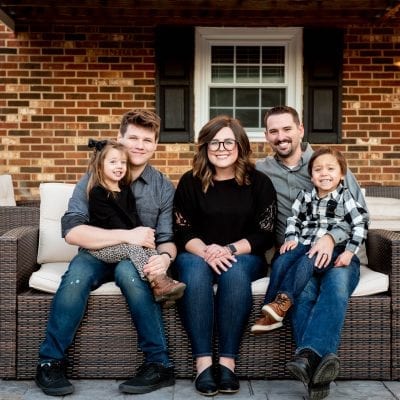Perseverance. That is what Adam and Meghan Parker have relied on throughout their foster care and adoption journey. The idea of fostering had been floating around the family’s minds for a while, but it just never landed. Then, after Meghan and Adam welcomed a biological daughter named Merryn, the idea of fostering reappeared. This time, it stuck.
Adam and Meghan became approved foster parents with their local department of social services in January 2018. It didn’t take long for their home to be filled. The Parkers welcomed 17-year-old Elijah into their home. Meghan already knew Elijah from her years spent teaching in a local alternative school. Elijah had been in foster care for years. He came to them emotionally battered and bruised from his years in the system. He struggled with trust, boundaries, and the idea of family in general. But they fought hard for him and eventually, he found peace in their home.
Around the time Meghan and Adam were trying to settle into their lives with a teenager and toddler, they were contacted about an adoptive placement for James. So, with hope in hand, they welcomed James into their home. James was 3 years old at the time and needed constant care due to severe asthma and autism. He struggles to control his anger, which translates to prolonged violent tantrums. Parenting James was and is a struggle for the Parkers.
“During those dark times, I always remind myself if James was my biological child, I wouldn’t give up on him. So, we don’t give up,” said Meghan.
During their journey to bring Elijah and James home, Meghan and Adam knew they needed additional support and turned to counseling and support groups through DePaul’s Community-Based Services program.
“We learned that you can’t outlove trauma. It takes time and counseling,” said Meghan.
Post-adoption support services and family counseling have kept the Parkers on track. Without those services, they say they would be lost. Meghan and Adam learned about reactive attachment disorder, a condition in which children don’t form secure, healthy emotional bonds with parental figures. They learned that the work of healing does not stop when the adoption papers are signed.
“During the foster care and adoption process, you need support. You need education. You need someone in your corner that knows your heart and believes in you,” said Adam.
Today, the Parker family still faces challenges. But now, they have the confidence and support to keep going, to keep pushing, to keep persevering.

